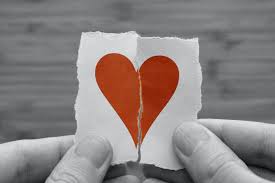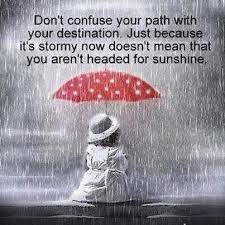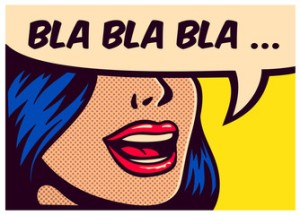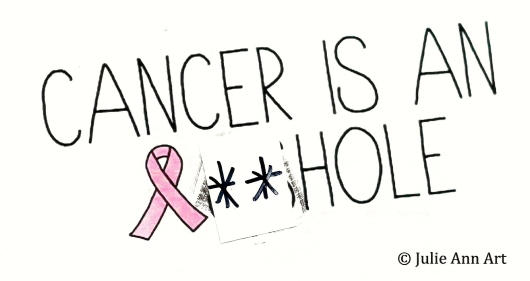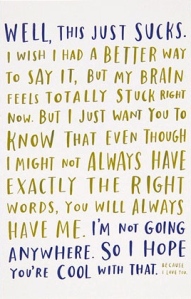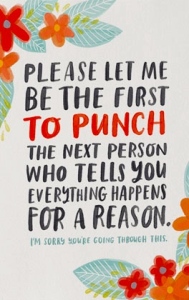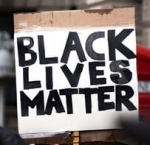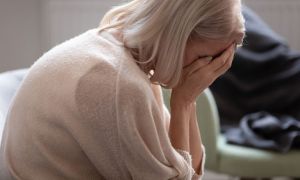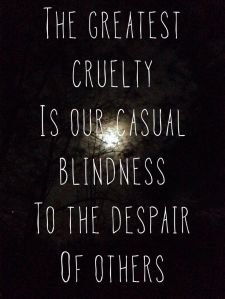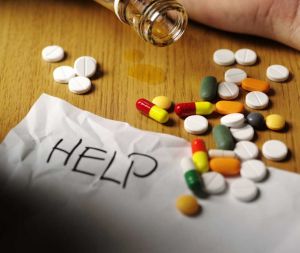I just came across this article from the New York Times in an old email folder and thought it well worth posting here. I wonder if you agree with the author’s sentiments – I do!
______________________________________________________________________
Think About Pink (NYT – November 12, 2010)
By PEGGY ORENSTEIN
A friend of mine’s 12-year-old daughter has taken to wearing a bracelet, one of those rubber, Lance Armstrong-style affairs, that says on it, “I ❤ Boobies.”
“Oh, yeah,” she said, vaguely, when questioned about it. “It’s for breast cancer.”
Really?
It’s hard to remember that, not so long ago, the phrase “breast cancer” was not something women spoke aloud, even among themselves. It wasn’t until the early 1970s, with the high-profile diagnoses of the former child star Shirley Temple Black, the first lady Betty Ford and Happy Rockefeller that the disease went public. A short time later, Betty Rollin, an NBC-TV correspondent, published the groundbreaking memoir “First You Cry.” Back then, her grief over losing her breast and the blow cancer dealt to her sex life was greeted with hostility by some critics and dismissed as frivolous. Mammography was just coming into use to detect early-stage tumors. The American Cancer Society was still resisting the idea of support groups for post-mastectomy patients. A woman like Rollin, some said, was supposed to be grateful that she qualified for a radical mastectomy, stuff a sock in her bra and get on with it.
Fast-forward to today, when, especially during October, everything from toilet paper to buckets of fried chicken to the chin straps of N.F.L. players look as if they have been steeped in Pepto. If the goal was “awareness,” that has surely been met — largely, you could argue, because corporations recognized that with virtually no effort (and often minimal monetary contribution), going pink made them a lot of green.
But a funny thing happened on the way to destigmatization. The experience of actual women with cancer, women like Rollin, Black, Ford and Rockefeller — women like me — got lost. Rather than truly breaking silences, acceptable narratives of coping emerged, each tied up with a pretty pink bow. There were the pink teddy bears that, as Barbara Ehrenreich observed, infantilized patients in a reassuringly feminine fashion. “Men diagnosed with prostate cancer do not receive gifts of Matchbox cars,” she wrote in her book “Bright-Sided.”
Alternatively, there are what Gayle Sulik, author of “Pink Ribbon Blues,” calls “She-roes” — rhymes with “heroes.” These aggressive warriors in heels kick cancer’s butt (and look fab doing it). Like the bear huggers, they say what people want to hear: that not only have they survived cancer, but the disease has made them better people and better women. She-roes, it goes without saying, do not contract late-stage disease, nor do they die.
That rubber bracelet is part of a newer, though related, trend: the sexualization of breast cancer. Hot breast cancer. Saucy breast cancer. Titillating breast cancer! The pain of “First You Cry” has been replaced by the celebration of “Crazy Sexy Cancer,” the title of a documentary about a woman “looking for a cure and finding her life.”
Sassy retail campaigns have sprung up everywhere, purporting to “support the cause.” There is Save the Ta-Tas (a line that includes T-shirts and a liquid soap called Boob Lube), Save Second Base, Project Boobies (the slogan on its T-shirts promoting self-exam reads, “I grab a feel so cancer can’t steal,” though the placement of its hot-pink handprints makes it virtually impossible for them to belong to the shirt’s wearer). There is the coy Save the Girls campaign, whose T-shirt I saw in the window of my local Y.M.C.A. And there is “I ❤ Boobies” itself, manufactured by an organization called Keep a Breast (get it?).
Sexy breast cancer tends to focus on the youth market, but beyond that, its agenda is, at best, mushy. The Keep a Breast Foundation, according to its Web site, aims to “help eradicate breast cancer by exposing young people to methods of prevention, early detection and support.” If only it were that simple. It also strives to make discussion of cancer “positive and upbeat.” Several other groups dedicate a (typically unspecified) portion of their profits to “educate” about self-exam, though there is little evidence of its efficacy. Or they erroneously tout mammography as “prevention.”
There’s no question that many women, myself included, experience breast cancer as an assault on our femininity. Feeling sexual in the wake of mastectomy, lumpectomy, radiation or chemo is a struggle, one that may or may not result in a new, deeper understanding of yourself. While Betty Rollin acknowledged such visceral feelings about breasts, she never reduced herself to them. And in the 1990s, the fashion model Matuschka’s notorious photo of her own mastectomy scar (published on the cover of this magazine) demanded that the viewer, like breast-cancer patients themselves, confront and even find beauty in the damage.
By contrast, today’s fetishizing of breasts comes at the expense of the bodies, hearts and minds attached to them. Forget Save the Ta-Tas: how about save the woman? How about “I ❤ My 72-Year-Old One-Boobied Granny?” After all, statistically, that’s whose “second base” is truly at risk.
Rather than being playful, which is what these campaigns are after, sexy cancer suppresses discussion of real cancer, rendering its sufferers — the ones whom all this is supposed to be for — invisible. It also reinforces the idea that breasts are the fundamental, defining aspect of femininity. My friend’s daughter may have been uncertain about what her bracelet “for breast cancer” meant, but I am betting she got that femininity equation loud and clear.
I hate to be a buzz kill, but breast cancer is just not sexy. It’s not ennobling. It’s not a feminine rite of passage. And, though it pains me to say it, it’s also not very much fun. I get that the irreverence is meant to combat crisis fatigue, the complacency brought on by the annual onslaught of pink, yet it similarly risks turning people cynical. By making consumers feel good without actually doing anything meaningful, it discourages understanding, undermining the search for better detection, safer treatments, causes and cures for a disease that still afflicts 250,000 women annually (and speaking of figures, the number who die has remained unchanged — hovering around 40,000 — for more than a decade).
As for me, I bear in mind the final statement that a college pal of mine who was dying of breast cancer (last October, in the midst of all that sexy pink) made to her younger brother. She was about to leave two young sons to grow up without a mother; her husband to muddle through without his wife. She could barely speak at the time, barely breathe. But when her brother leaned forward, she whispered two words in his ear: “This sucks.”
______________________________________________________________________
As a breast cancer survivor myself I can relate to Peggy Orenstein’s feelings. While I applaud the efforts of various foundations to raise money to help with research into the causes of, and hopefully one day a cure for, breast cancer I think there is definitely over-kill in the way pink is used to push the message about early detection, mammography and so on.
Where is the support for those (mostly) women who are living with the disease and/or the effects of treatment? Many people don’t realise that while certain drugs can effectively kill the dreaded cancer cells (at least for the time being) there are often permanent and distressing changes that have to be lived with that impact on quality of life. But the message seems to be that these people should be grateful that they’ve survived. As I’m sure they are – but at what cost?
I’d love to see a PINK campaign that acknowledges and validates the reality of life for someone who has or has had breast cancer. Life definitely isn’t all roses (pink or otherwise) and everyone deserves the recognition that whether you’re on your death bed or simply struggling to get through treatment that will make you better, it does indeed “suck”. Big Time.
When I wrote my book, Journey to Me, I was advised to “tone it down”, to take out a lot of what I’d written about what it really was like going through surgery and chemo. I stuck to my guns though because I was fed up with people pussy-footing around what it’s really like. I would have handled things a lot better if I’d been better prepared for the shock of seeing how my chest was concave post-mastectomy (having prepared myself for it to be flat), losing my hair (the worst moment was when it started to fall out in the shower and clogged the drain), the humiliation of suffering uncontrollable diarrhoea and having to wash my bedding at 2 o’clock in the morning…
Pink campaigns to educate women about how to reduce the number of people who are diagnosed with breast cancer are all well and good but where are the campaigns to raise awareness of the need for people to know how to cope with the actual disease?
Yes, I did get through it, and that’s a big part of the message I wanted to get out there; that if you do survive you can go on to live a fulfilling life. But I will NEVER say that I’m grateful that cancer gave me the opportunity to forge the great life I have today. I would much prefer to have got here without cancer, thanks very much!
And some people, like Peggy Orenstein’s college friend, don’t survive; that needs to be talked about too. So let’s all push for pink campaigns that address the down and dirty reality of breast cancer and stop pretending that it is less than it is – a truly traumatic time in anyone’s life.
(Journey to Me can be purchased through http://www.janegillespie.net)
Jane Gillespie © 2013
